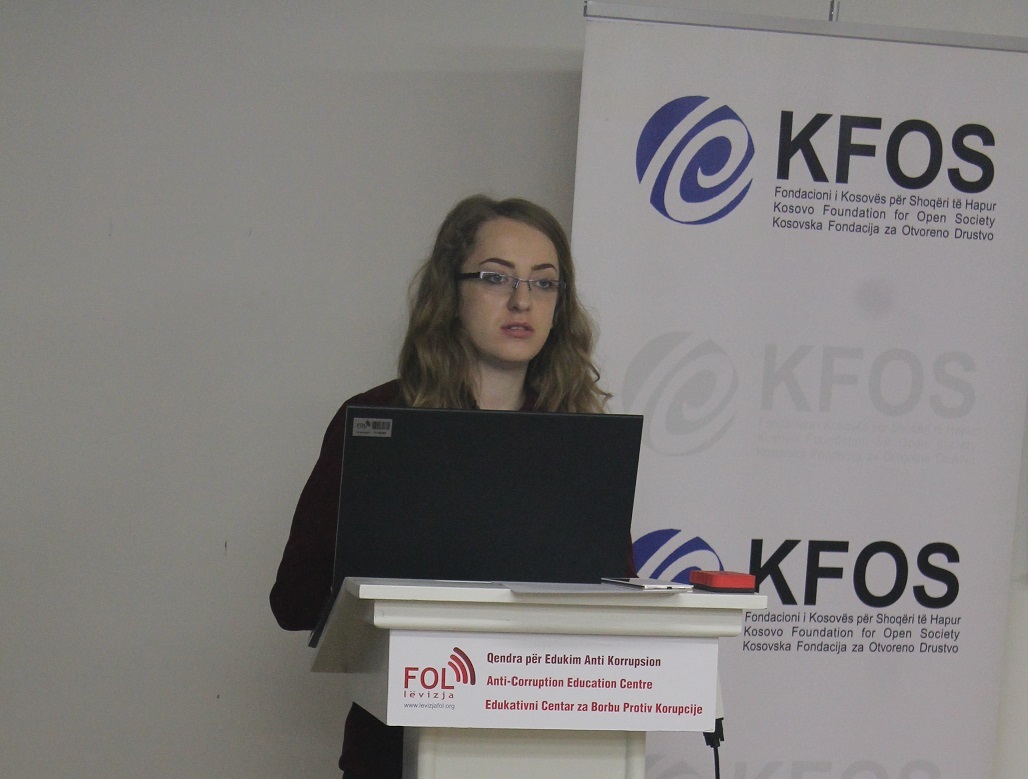Irregularities and mismanagement continue to follow public procurement
Prishtina 1 December 2017 – Lëvizja FOL, under the project Raising Accountability of Institutions on the ways of spending public money today has the findings from the monitoring of public procurement contracts in the Ministry of Health, the Ministry of Infrastructure and the Ministry of Trade and Industry.
This report presents the findings from a 3-month monitoring of high value contracts by the Ministry of Health, the Ministry of Infrastructure and the Ministry of Trade and Industry. Gresa Smolica from the Lëvizja FOL said that from the full monitoring of the procurement process in these three ministries it turns out that public procurement remains a non-transparent sector to the public as access to contract documentation remains limited. According to Smolica, FOL has monitored the procurement process, starting from the planning of the procurement activity to the signing of the contract and the implementation of the activity. “In many cases, the institutions are reluctant to open these documents, such as the case of the Ministry of Infrastructure, which did not give us access to the required contracts, necessitating the involvement of the People’s Advocate Office through the complaint filed by the Lëvizja FOL for not answering the request for access to public documents, “she said.
Contract dossier required by MI “Construction of the autopilot A7.1- Crossing at the A6 / A7.1 (Banullë) – Dheu i Bardhë – Part: Crossing at A6 / A7.1 (Banullë) – Crossroads Bresalc- L = 22.31km “was not given to FOL with reasoning that the case is in the PRB.
Meanwhile in the Ministry of Health is analyzed the contract “Supply with drugs from Essential List” with procurement number 206-17-452-1-1-1. This contract was accompanied by some irregularities and is still unimplemented today due to mismanagement of the budget for the realization of this contract. Part 6 or Lot 6 of this contract, after being given to the economic operator to be realized, has been canceled by the Procurement Officer, Alban Pozhegu, on the grounds that the Economic Operator has bid at a higher price than the market price. This shows mismanagement in the procurement process as well as misstatement of the budget for certain medicines.
For the same official, Lëvizja FOL has found that it does not possess a licensing certificate issued by the PPRC, and the same did not attend the obligatory training at the PPRC at the time of signing the contract that we monitored. Following the complaint of the economic operator in PRB, the expertise of the PRB argues that the contracting authority Ministry of Health with the cancellation of the contract has acted in opposition to article 62 of the Law on Public Procurement, and requires the case to be returned for re-evaluation. The irregularities that accompanied this process, the failure to observe the deadlines set by the PRB as well as the ascertainment by the PPRC that this official does not fully meet the requirements under section 25.6 to fully comply with the duty of the Procurement Officer on 13 October 2017, PPRC makes a decision that Alban Pozhegu is suspended the right to serve as a Procurement Officer.
According to her, all these elements make the institutions as well as civil society more engaging in finding the most appropriate ways to increase transparency in this area. “Amendments to the Law on Public Procurement are still needed especially in the principles of transparency, while enhancing the integrity of public officials is essential for the smooth running of the public procurement process. Raising accountability in this sector is only possible when the legal framework matches the accountability of officials and the public enjoys the legally guaranteed approach.”
